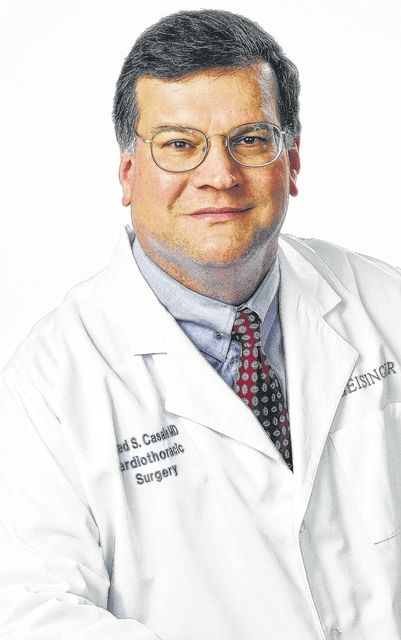Click here to subscribe today or Login.
I expected to feel worse.
Saturday morning actually wasn’t that bad. Sure, I was a little sore, having used muscles in ways I usually don’t and having run up and down stairs enough to give my Fitbit seizures. But after a while, some stretching and loosening up, I didn’t feel too sore after helping Kate, Andy and Rowan move into their new home in the Chicago suburb of Winnetka from their condo downtown.
OK, there were incredibly strong movers doing the heavy lifting (literally), but there’s always plenty of stuff for family helpers to do; in this case, often involving chasing and lifting a 19-month-old out of harm’s way.
I bet you, too, remember when you were a kid and you jumped out of bed ready to take on the day. As an adult, things may not be so easy. You sometimes feel stiff and sore, and those first few steps may be particularly bothersome. It seems illogical that you feel worse after a good night’s sleep than when you went to bed, but there are explanations behind those aches and pains — some you can control, and some you just have to deal with.
Morning soreness is very common, especially as we age. However, before you reach for a pain reliever, there are some natural remedies that may help.
What causes the pain?
There are many causes of morning stiffness, aches and pains. Usually, it will last for the first 10 to 15 minutes of the day and gradually resolve as your body stretches and warms up.
These causes of morning pain may include:
Aging:
As you age, the spongy cushion of cartilage that protects your joints can dry out and become stiffer, leading to pain — especially in the morning. You may also start to develop osteoarthritis, the type of wear-and-tear arthritis that happens when cartilage wears away and your bones rub together. The symptoms may be more pronounced in the morning.
Weight gain:
If you’re overweight or obese, you’re at higher risk for experiencing pain throughout the day — including when you first wake up. Excess weight puts more stress on your joints and muscles, which makes you susceptible to knee and back pain. It also puts you at risk for chronic diseases that cause pain, such as diabetes and arthritis.
Pregnancy:
Pregnancy is a stress on your body and can contribute to morning pain and stiffness, especially if you’re sleeping in a strange position because of your growing belly. (Clearly not my excuse.)
Chronic diseases:
Morning stiffness is a common symptom of some chronic diseases such as fibromyalgia. Fibromyalgia may also disrupt your sleep, which can cause you to feel tired and groggy when you wake up. Sleep apnea, one of several types of disordered sleeping, can lead to inadequate rest and contribute to not only fatigue but general soreness.
Inactivity:
If you don’t exercise regularly, your inactivity can lead to muscle weakness and stiffness in your tendons, ligaments and connective tissue. This tightness can leave you feeling stiff and sore in the morning.
Exercise:
Conversely, if you’re over-exercising or adding a new activity to your daily routine, you may feel muscle soreness when you wake up. Your muscles are working hard to repair themselves from the stress of the exercise, or lifting an ever-growing granddaughter — especially one who doesn’t want to be carried.
How to combat morning soreness
Natural remedies and lifestyle changes can help with morning aches:
Try to sleep on your side or back since sleeping on your stomach can put stress on your lower back. You may find a pillow under you knees relieves strain on your back as well.
Do some gentle stretching before getting out of bed.
Take a warm shower after you wake up to loosen your muscles.
Once you are warmed up, do some stretching or yoga.
Stay well hydrated, drinking plenty of water throughout the day.
Make sure your bedroom is free from drafts and dampness, which can increase your stiffness.
Pain relievers can help with pain and soreness if absolutely necessary. Use them on occasion if needed, but taking them every day can be problematic. If you need an over-the-counter medicine for longer than two weeks, it’s a good idea to talk to your doctor.
Their move is done. Got to think of some new excuse if I’m achy next week.








